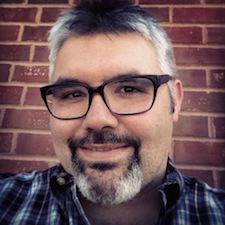This post is part of a blog series on Pomomusings, discussing pastoral identity. To read about the series, as well as get a full schedule of participants, click here.
 God’s Big Picture
God’s Big Picture
When Adam asked me to be a part of this blog series on pastoral identity, I knew that my post would come about a month after announcing to my congregation that I will be leaving in a few months to accept a four-year appointment as a visiting seminary professor. In the midst of this transition, pastoral identity is certainly on my mind. When I was first approached to consider applying for this seminary job I was hesitant because I wasn’t sure that I really wanted to get out of parish ministry, even for a position that is very much designed for an active practitioner. Years ago I concluded that my primary sense of call is to the church and not the academy. But now those lines of demarcation are getting fuzzy again and I need to rethink where I fit in the bigger picture of what God is doing in the world.
Ironically, I’m once again entering a period of discernment very much like the kind I encourage confirmands, high school students, and emerging adults to engage. At the end of my confirmation program I sit down for a one-on-one discussion with each of our confirmands. After talking about a variety of theological questions I ask them what they are passionate about and what they most enjoy doing. I then pivot into a conversation about call and suggest that their passions and gifts might be good indications of what God wants them to do with their lives. I tell them that I believe all of us are called to make a difference in the world, whatever our professions may be, and that the ten or fifteen year period they are entering is a foundational time of discernment. Each of them has a role to play in the big picture of what God is doing in the world and part of what it means to live a life of faith as a young person is figuring out what that looks like.
I see now that making a career shift is a similar kind of liminal time. I have a pretty clear sense that my big-picture call is to be a leader in the changing landscape of contemporary North American Christianity. But this seminary opportunity forced me to consider whether congregational ministry is the only or best way for me to engage this call.
Yet I wonder how or if I will still think of myself as a pastor. A couple of months ago, before Adam proposed this series, I wrote a post of my own about pastoral identity. I differentiated between my pastoral identity, my job description as an installed pastor, and the priestly functions I am sometimes called to perform. How will I rethink the first and third when the second is no longer my current reality?
I have long thought that to be pastor one needs to have a congregation. I never understood how certain writers and speakers continue to call themselves pastors when they haven’t led a congregation in years. I wonder if I will reconsider this now that I will be one of those people.
I suspect that I will renegotiate what I consider to be my “congregation.†I will no doubt have students with whom I might develop a pastoral relationship. I anticipate doing a variety of things in the congregations of my new presbytery. I will continue to have blog readers who connect with my writing. Will this be my new community? Is this new chapter an opportunity to develop a new worshiping community or plant a new church?
For now, perhaps it is enough to simply live my life as a follower of Jesus and walk the path God sets before me. I don’t need “pastor†in my job title to do that.
John Vest is currently the Associate Pastor for Youth Ministry at the Fourth Presbyterian Church of Chicago. In June he will become the Visiting Assistant Professor of Evangelism at Union Presbyterian Seminary in Richmond, Virginia. But he mostly dreams of one day achieving the mystical union of church and BBQ. You can read about his “Adventures in Post-Christendom†at johnvest.com.